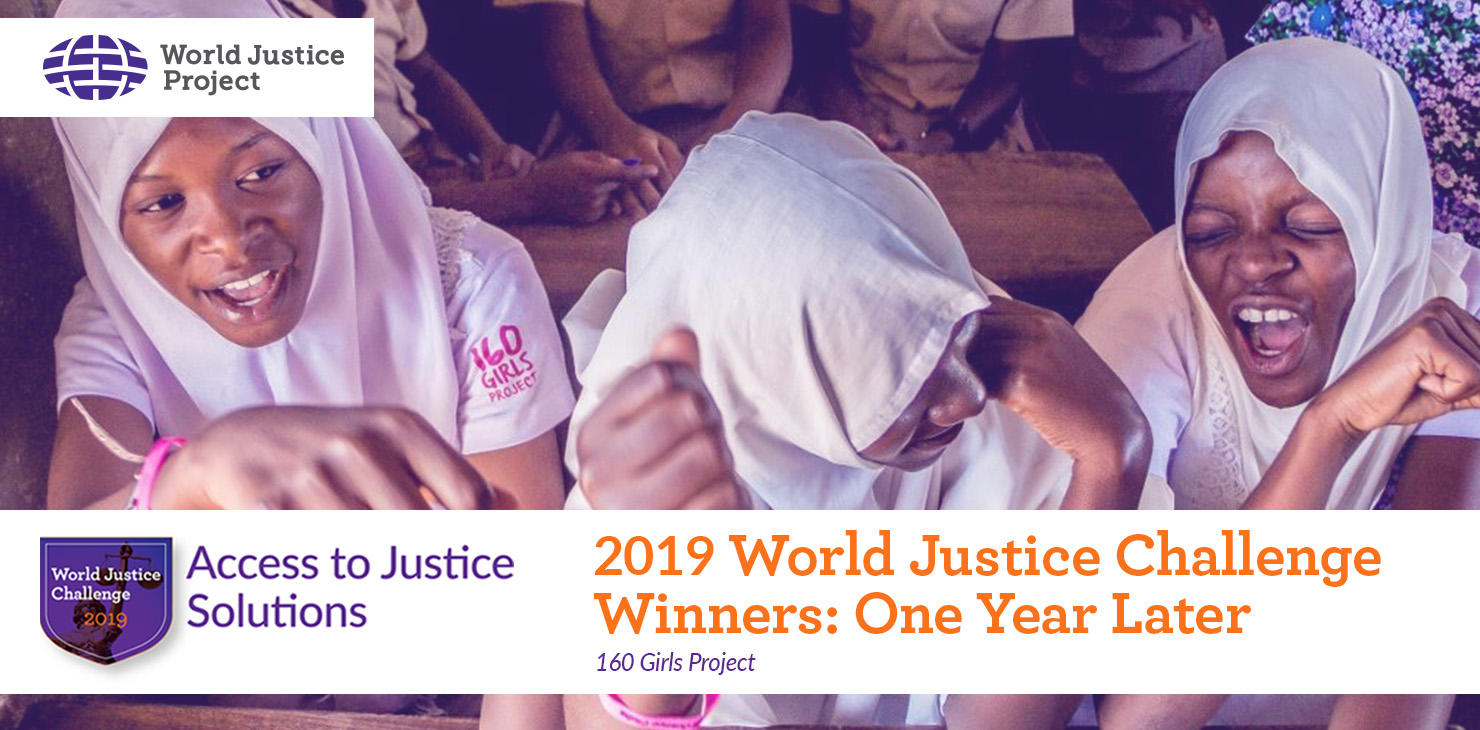

One year ago, the World Justice Forum 2019 concluded with the announcement of the winners of the 2019 World Justice Challenge: Access to Justice Solutions. To mark this occasion, WJP is catching up with each winning project to learn how their work has evolved over the past year, the challenges they face, and how the World Justice Challenge prize money has bolstered their work.
160 Girls Access to Justice Project
The Equality Effect, Kenya
One in three Kenyan girls experience sexual violence. In 2013 the Kenyan High Court found that police failure to enforce existing rape law had created a climate of impunity. This project is working to change this culture through police trainings, education, and creative legal advocacy projects.
What has changed for the 160 Girls Access to Justice Project in the last year?
Over the course of the past year, The Equality Effect (e2) has focused on analyzing the outcomes of its two most successful programs, and on their expansion. The "160 Girls Project," which helps young girl leaders to learn and inform others of their rights of protection and complaint against sexual violence, was examined and fine-tuned with plans to expand the program to all schools in Kenya in the coming years. This expansion began in January 2020, but was stalled due to COVID-19 and the schools closing as a response.
Key Project Takeaways:
- One hundred and eighty Justice Club girl leaders were surveyed and reported a positive feeling about the training experience even if it proved more difficult than imagined.
- The experience has helped them develop both soft (i.e. social/communication) skills (69%) and management skills (71%).
- The experience seems to have restored confidence in the police as a key actor.
In addition, the police defilement investigation training pilot was met with success and will be deployed to 80,000 police officers across Kenya.
What challenges has the project faced in light of COVID-19 and how has the project responded?
In March 2020, e2 began reconceptualizing its Justice Clubs and moving forward with Virtual Justice Clubs to respond to the COVID-19 crisis. However, problems remain. The school closure has meant that girls are at increased risk of rape, leaving them exposed to aggressors and with reduced access to police and justice mechanisms.
How has winning the 2019 World Justice Challenge made an impact on the project?
The World Justice Challenge 2019: Access to Justice Solutions prize money is being used to scale up the project, currently in order to set up Virtual Justice Clubs, and then will be used to set up hybrid clubs, in schools and also virtually, all across Kenya.
"Participating in the World Justice Forum and World Justice Challenge was a huge benefit to the equality effect's 160 Girls project as an invaluable endorsement of the project, an opportunity to increase the project's profile and credibility, and it provided a boost in terms of pride for the project team members, and has provided a source of inspiration that motivates and energizes — it is the gift/prize that keeps giving!"
Learn more about Equality Effect and the 160 Girls Access to Justice Project in WJP's Program Library.
The winning projects of the World Justice Challenge 2019: Access to Justice Solutions were among 30 finalists chosen from over 250 applications from around the world at the World Justice Forum in The Hague. They each represent innovative efforts to bring justice to individuals and communities that have seen little of it in the past. We are pleased to share their latest work with you and to encourage the rule of law community to participate in our upcoming World Justice Challenge 2021. Stay tuned for a 2021 Challenge announcement coming this fall.






